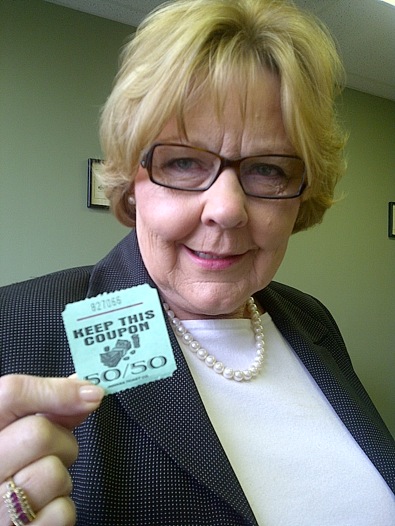|
Question of the day
Thursday, Mar 29, 2012 - Posted by Rich Miller * This bill passed the Senate yesterday 50-1…
* The Question: Should state law be changed to allow Cancer Treatment Centers of America to refuse to hire tobacco users? Take the poll and then explain your answer in comments.
|
|
House looking at bigger cuts to pay off some old bills
Thursday, Mar 29, 2012 - Posted by Rich Miller * As I told subscribers earlier today, this proposal also includes another $500 million from federal Medicaid matches, leading to a proposed late overdue state bill reduction of $1.3 billion…
Those reductions are on top of the governor’s proposed cuts. Some agencies are already slated for 9 percent cuts. And it does include the governor’s proposed $2.7 billion in Medicaid cuts, although it mandates that the budget will have to be cut further if Gov. Pat Quinn’s target isn’t reached. The resolution is here. * And while that spending cap will be quite painful, the General Assembly is also looking at some smaller items. Here’s a quick roundup…
Discuss.
|
|
Not the greatest subject matter for a guy with a birthday party hangover
Thursday, Mar 29, 2012 - Posted by Rich Miller * Yuck…
* Ugh…
I just wanna go back to bed.
|
|
Judge: Blagojevich exhibited “mental instability”
Thursday, Mar 29, 2012 - Posted by Rich Miller * Rod Blagojevich’s former chief of staff John Harris was sentenced to just ten days in prison yesterday. Judge James Zagel seemed to almost pity him at times…
* Judge Zagel also praised Harris for his cooperation with prosecutors…
* And the prosecution stepped up for their witness…
Discuss.
|
|
Protected: SUBSCRIBERS ONLY: House advancing spending cap
Thursday, Mar 29, 2012 - Posted by Rich Miller
|
|
*** LIVE SESSION COVERAGE ***
Thursday, Mar 29, 2012 - Posted by Rich Miller * BlackBerry users click here and everyone else can just hang back and watch all of today’s events unfold…
|
|
*** UPDATED x2 *** Caption contest!
Thursday, Mar 29, 2012 - Posted by Rich Miller * Oh, it was a late night at Boones, campers. I’m running real slow and having difficulty finishing the Fax. Thanks to everyone who came out for my 50th birthday party. We raised a whole lot of money for Lutheran Social Services of Illinois. We also auctioned off five bottles of barbeque sauce, raising an amazing $4,250 for the Harrisburg tornado disaster relief fund. The 50/50 raffle ticket winning number is 827066. The total amount is over $700, but I’m sure whoever won will donate their half back to LSSI, right? * AARP IL had a little fun at my expense by presenting me with a huge new membership card. Sorry for the pic quality…  Caption? *** UPDATE 1 *** You know, if I was more cynical and if it wasn’t my party, I might think the 50/50 drawing was rigged. AARP IL has the winning raffle ticket…  …Adding… And, of course, the other half will be donated back. Thanks! *** UPDATE 2 *** We raised just shy of $6,000 for LSSI last night and just over $4,000 for the tornado victims. Ten grand for charity ain’t a bad night. Saturday will be a whole lot bigger, though.
|
| « NEWER POSTS | PREVIOUS POSTS » |


















